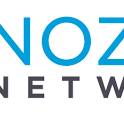
Nozomi IDS
Improve your awareness of anomalous traffic from devices in your network by ingesting Nozomi Networks logs into LogScale.
This package provides a parser for Nozomi IDS events in JSON format.
Breaking Changes
This update includes parser changes, which means that data ingested after upgrade will not be backwards compatible with logs ingested with the previous version.
Updating to version 1.0.0 or newer will therefore result in issues with existing queries in for example dashboards or alerts created prior to this version.
See CrowdStrike Parsing Standard (CPS) 1.0 for more details on the new parser schema.
Follow the CPS Migration to update your queries to use the fields and tags that are available in data parsed with version 1.0.0.
Configurations and Sending The Logs to LogScale
See Nozomi Syslog Specification manual for information on how to send Nozomi's logs to Falcon LogScale Collector.
Installing the Nozomi IDS Package in LogScale
Find the repository where you want to send the logs, or create a new one.
Navigate to your repository in the LogScale interface, click Settings and then on the left.
Click and install the LogScale package for Nozomi (i.e. nozomi/ids).
When the package has finished installing, click on the left (still under the , see Ingest Tokens).
In the right panel, click to create a new token. Give the token an appropriate name (e.g. the name of the server the token is ingesting logs for), and leave the parser unassigned.
You can also assign the parser to the LogScale Collector Configuration as described in the documentation Sources & Examples
nozomi-syslogparser to it.Before leaving this page, view the ingest token and copy it to your clipboard — to save it temporarily elsewhere.
Now that you have a repository set up in LogScale along with an ingest token you're ready to send logs to LogScale.
Next, configure the Falcon LogScale Collector to ship the logs from your syslog server into LogScale. Follow LogScale Collector Install LogScale Collector and Configure LogScale Collector. LogScale Collector documentation also provides an example of how you can configure your syslog datasource, see Sources & Examples.
Configuring Nozomi to Send Logs
To configure Nozomi to properly send logs to LogScale:
Using your Nozomi credentials, log in to the
Guardianconsole.Select →.
Click on the right side of the screen.
Select the option from the drop down.
Enter the appropriate host information. For example:
tcp://<log collector ip>:514Select Enable Sending Alerts and/or Enable Sending Audit Logs and/or Enable Sending Health Logs.
Click . Make sure that the port configured in syslog matches the port in the LogScale Collector Configuration.
Verify Data is Arriving in LogScale
Once you have completed the above steps the CTD data should be arriving in your LogScale repository.
You can verify this by doing a simple search for #Vendor =
"nozomi" | #event.module = "ids" to see the CTD events.
Package Contents Explained
This package parses incoming data, and normalizing the data as part of that parsing. The parser normalizes the data to CrowdStrike Parsing Standard (CPS) 1.0 schema based on OpenTelemetry standards, while still preserving the original data.
If you want to search using the original field names and values, you can access those in the fields whose names are prefixed with the word "Vendor". Fields which are not prefixed with "Vendor" are standard fields which are either based on the schema (e.g. source.ip) or on LogScale conventions (e.g. @rawstring).
The fields which the parser currently maps the data to, are chosen based on what seems the most relevant, and will potentially be expanded in the future. But the parser won't necessarily normalize every field that has potential to be normalized.
Event Categorisation
As part of the schema, events are categorized by three different fields:
event.kind
event.type
event.category
event.category is an array, so needs to be searched like so:
array:contains("event.category[]", value="network")
This will find events where some event.category[n] field contains the value "network", regardless of what `n` is. Note that not all events will be categorized to this level of detail.
Normalized Fields
Here are some of the normalized fields which are being set by this parser:
log.syslog.priority
log.syslog.version
log.syslog.hostname
log.syslog.appname
log.syslog.msgid